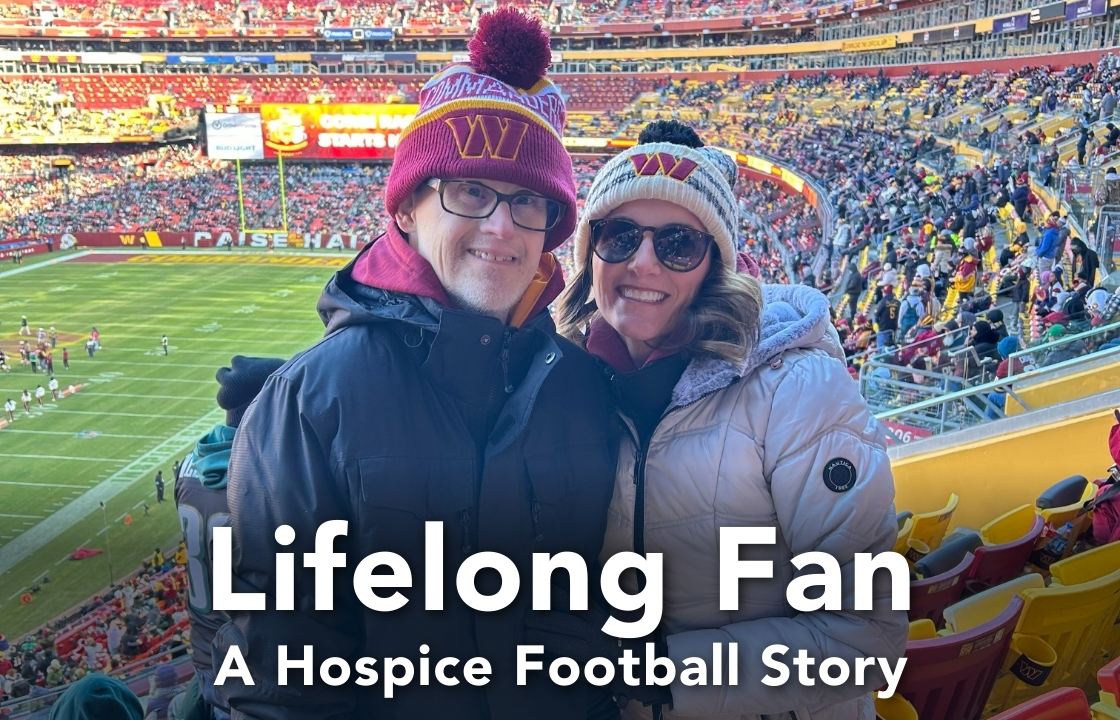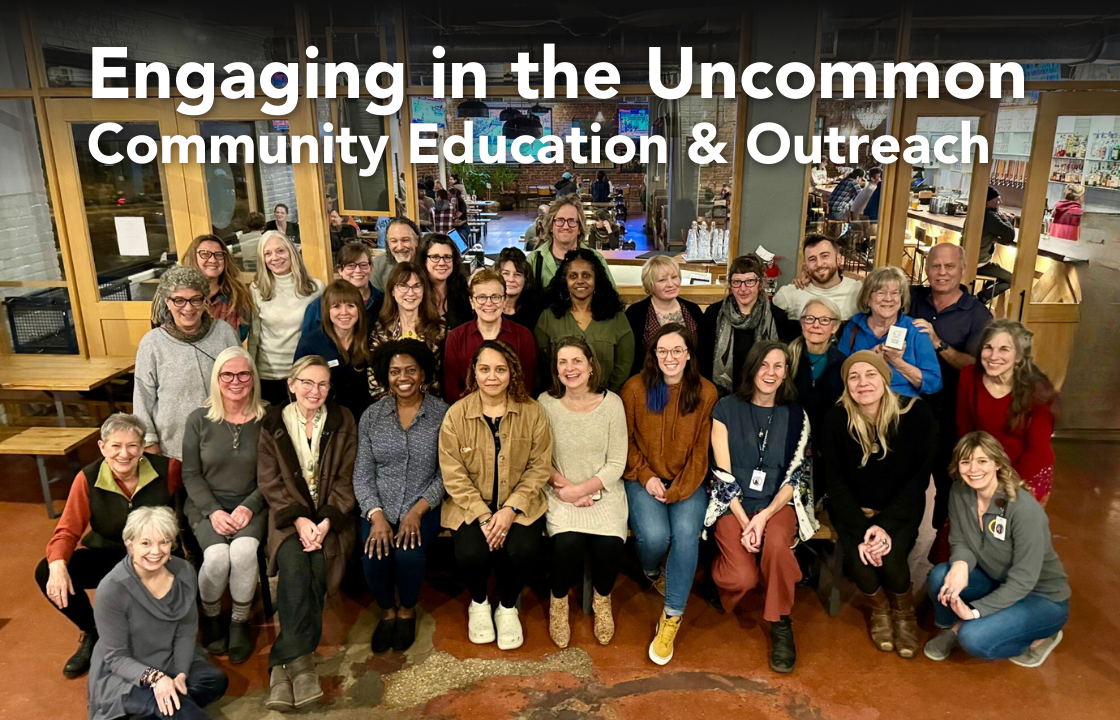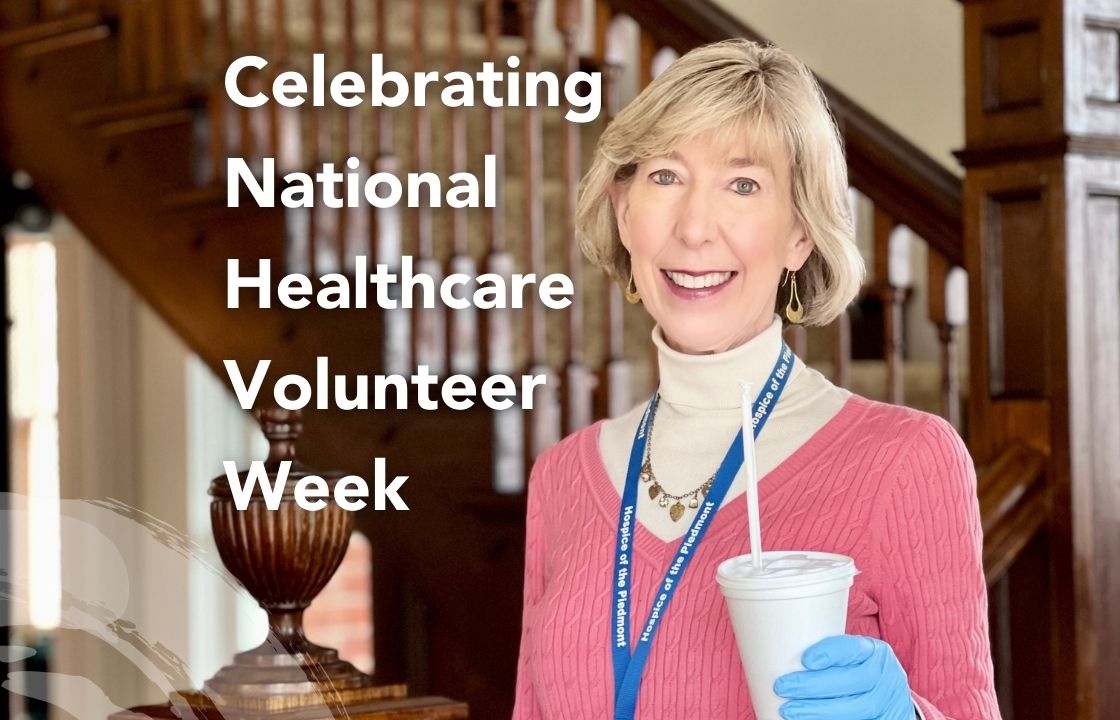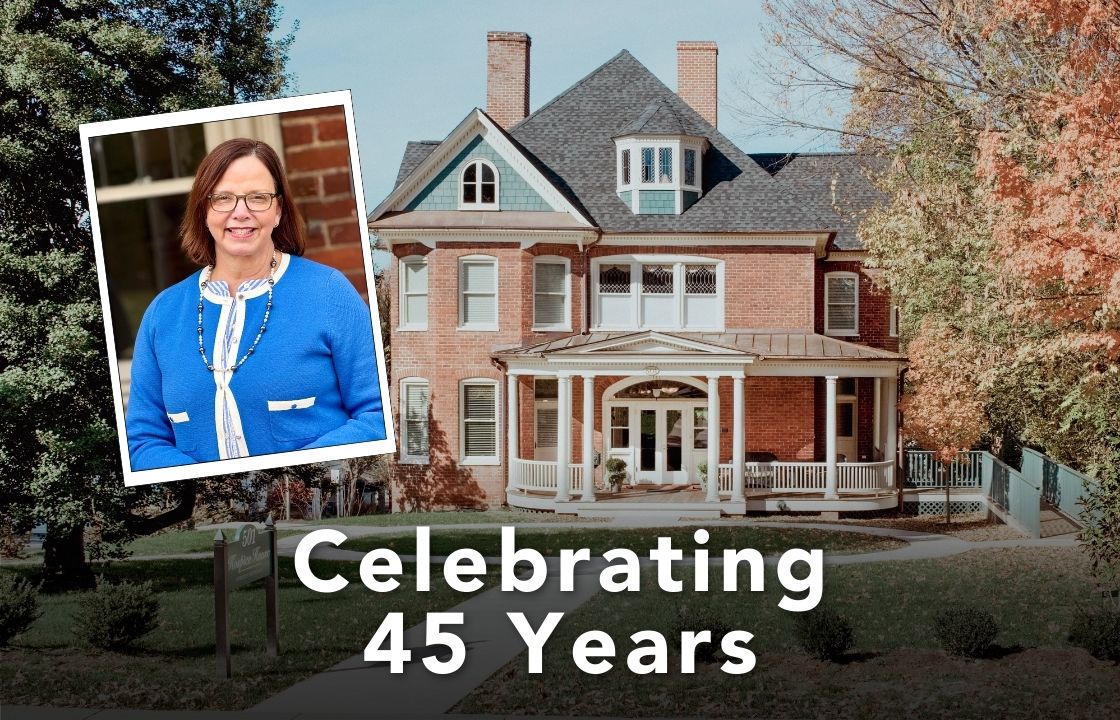Five turnovers. Down by 13 points. The clock was running out.
For Matthew—a lifelong Commanders fan with Down syndrome facing metastatic lung cancer—this was supposed to be a dream come true. But dreams, like football games, don’t always come easy.
It was week 16. The Commanders could ill afford another loss. And here they were, on the verge of defeat against the Philadelphia Eagles.
And then, in the final seconds, everything changed.
With the crowd on its feet and the stadium roaring, the Commanders pulled off a miraculous comeback—and Matthew, wrapped in team gear and alongside family, was there to see it all.
For Matthew, it never mattered if they won or lost—they were always his team.
A Surprise Diagnosis
“When they discovered that he was metastatic, there weren’t options,” explains Matthew’s sister, Heidi. “There was no surgery. There was no chemo. There were no options. So, that was probably the biggest shock to us.
Yet, despite the shock, Heidi wasn’t afraid of hospice care. “The hospice part wasn’t scary. It was more processing the metastatic part. Like really? He’s young. He’s just in his 50s.”
Knowing they would need hospice care, Matthew and his family turned to Hospice of the Piedmont (HOP).
“Just to have the presence of the hospice team, it’s been company for him. It’s support. He gets to be around cheerful people who are interested in him,” she says
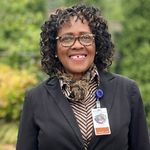
One of the first members of the HOP team to visit was the chaplain, Dr. Ethel. She quickly found a way to connect with Matthew through his faith.
“She asked him if he goes to church and asked to see his bulletins,” Heidi remembers. Matthew proudly retrieved them. Seeing the songs listed in the bulletins, Dr. Ethel began singing them for him—songs he recognized and loved. She closed the visit by saying the Lord’s Prayer with him, and Matthew joined in. “He loved it,” Heidi said. “It was so sweet.”
Seeing the Person, Not the Diagnosis
When someone signs up for hospice, their life changes. Matthew was no longer receiving sometimes painful treatment for his cancer, which gave him the opportunity to make meaningful memories.

Matthew’s hospice physician, Dr. Kell Mitchell, focused on treating him as a whole person, not just his diagnosis. Dr. Mitchell says, “We focus a lot on the medical stuff, but I want to make sure that we also focus on the non-medical side.”
Matthew could still walk around and participate in activities, so Dr. Mitchell asked Heidi if HOP could do anything during this time to bring him more joy.
Heidi described it as “bucket-list time” and mentioned, almost in passing, that Matthew was a huge Washington Commanders fan.
Matthew grew up in Vienna, Virginia, in the 1980s—a heyday for Washington football. Legendary coach Joe Gibbs led the team to three Super Bowl championships between 1981 and 1992. For Matthew, the Commanders weren’t just a local team—they were woven into his childhood, his identity.
A Bucket-List Dream
Heidi’s casual mention of Matthew’s fandom sparked an idea. Without telling Heidi, Dr. Mitchell sent a note to Lisa Stone, Matthew’s social worker, with the subject line, ‘Not urgent, but could be cool.’

Lisa took the idea and ran with it. It was the week before Christmas, and the Commanders had only a few home games left in the season. The hospice team had long embraced the idea of making dreams come true; could they pull this off?
Hospice of the Piedmont reached out to the Washington Commanders organization to see what might be possible. The response was almost immediate—and overwhelming. The Commanders offered not just tickets, but parking passes and even field passes to watch the team warm up before the game.
“I was shocked when I got the phone call that they had come up with some tickets,” Heidi said.
Heidi also recalled something that had always stuck with her. “You guys have that motorcycle commercial,” she said. “It used to make me laugh because I thought: Who in hospice could get on a motorcycle? But I get it now.”
Matthew wasn’t in pain. He wasn’t going through treatment. And he wasn’t ready to stop living.
Focusing on the Whole Person
For Dr. Mitchell, this moment reflected what hospice care is truly about—treating patients as whole people.
“We focus so much sometimes on the medical stuff—the medication, the disease, and everything,” they explained. “But people aren’t their diseases. Right? Matthew is not his cancer. He has a limited amount of time, and I don’t want that whole time to be focused on just the disease; I want it to be focused on the person.”
That philosophy turned what started as a passing remark into something extraordinary.
Preparing for the Big Day
When Heidi first learned about the tickets, her reaction wasn’t immediate excitement—it was logistics.
“I’m not a Game-Girl,” she admits, acknowledging her lack of football fandom. Instead, practical questions came to mind: “Who’s going to do this? This is two hours away. Who’s going to take him?”
She understood what an enormous gift it was and felt responsible for making it happen. But who would be the right people to accompany Matthew?
Heidi quickly thought of her daughter Hannah and Hannah’s husband, Greg. “I thought, well, they have three sons. So maybe they’re the right combination of people to take him,” says Heidi. “And they were just the perfect couple to take him.”
Hannah didn’t hesitate. “We were just absolutely thrilled when my mom called and told us about the tickets. I said, ‘Oh, we will make it happen for him!’”
Because of Uncle Matthew
Hannah had grown up with Uncle Matthew and had always been close to him. “He’s always watching the game. He has tons of gear. He has posters in his room. I’ve always known how much he loves the team.”
Inspired by Matthew, Hannah now works as a Support Coordinator for adults with developmental disabilities at Encompass Community Supports. Her sister also works in the field. Both were drawn to their careers because of Matthew. “I knew when my mom called and said he was given these tickets, I wanted to make it happen for him,” she says.
Greg, who grew up as a Washington football fan during the same era as Matthew, shared in the excitement. He bought Matthew a hoodie, a beanie, and other warm gear with Commanders’ logos. They planned every detail—from hand warmers to parking logistics to managing Matthew’s medical needs—to ensure he was comfortable and cared for throughout the day.
Game Day Drama
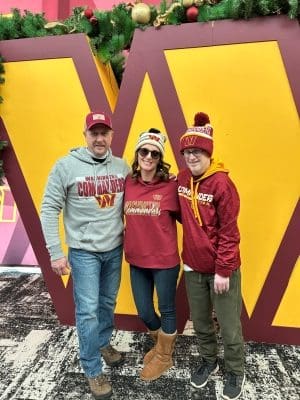
As they approached the stadium, Matthew was amazed. “Look at the stadium,” Hannah said, pointing it out. The excitement built as they navigated through security and crowds.
“The staff and everybody there was so helpful,” Greg said. “The family bathrooms were great, and everybody was accommodating.”
Even rival fans were welcoming. “At first, I was like, oh boy, this is not gonna be good,” Greg said about sitting near Eagles fans. “But it actually went really well. Everybody was friendly.”
Heidi, who was watching from home, admitted she was nervous. “I just wanted that game to be interesting, especially since it was a fiercely cold day. I wanted them to be able to stay there for the game. That was my prayer. But it ended up way more than that. It was such an exciting game.”
Heidi received updates throughout the day, including pictures of Matthew dancing in the stands.
Matthew soaked it all in—the music, the snacks, the energy of the crowd. He even connected with the people sitting nearby. “We were excited about it because even the people next to us almost became friends by the time it was over,” Greg said. “I think Matthew felt that, too.”
And when the Commanders staged their dramatic comeback, Matthew celebrated along with the crowd, high-fiving his new friends.
Reflections and Gratitude
The day left a lasting impact—not just on Matthew, but on everyone who heard his story.
“The gift wasn’t just to Matthew,” Heidi shares. “People in the stadium recognized that he was unique, and he got lots of smiles. I know my daughter and her husband appreciated that. I think they were as blessed taking him as Matthew was blessed to go.”
Hannah agreed: “We came home, and we were practically crying because it was such a special day.”
And the story spread well beyond the stadium, too. “Through neighbors, friends, church, and Facebook, the story has blessed a lot of people,” says Heidi.
“People are just so ‘for him,’” she adds. “There were people watching the game just because of Matthew. People were thinking about him all that day—all because of that gift.”
Redefining Hospice
Heidi hopes Matthew’s story challenges the way people think about hospice care. “He has a terminal diagnosis, but he feels pretty good,” she says. “There is time to be loved on. And a hospice team that can help you get there. Right now, I call it ‘the honeymoon.’ We’re in the honeymoon right now.”
Lisa, Matthew’s social worker, who understands better than most the road ahead for this family, says thoughtfully, “I’m so happy that the family had this experience with him, and they’ll have these memories to take with them after he’s gone.”
As with most sports stories, Matthew’s story isn’t just about the game. It’s about hope, resilience, and showing up for the moments that matter most.
